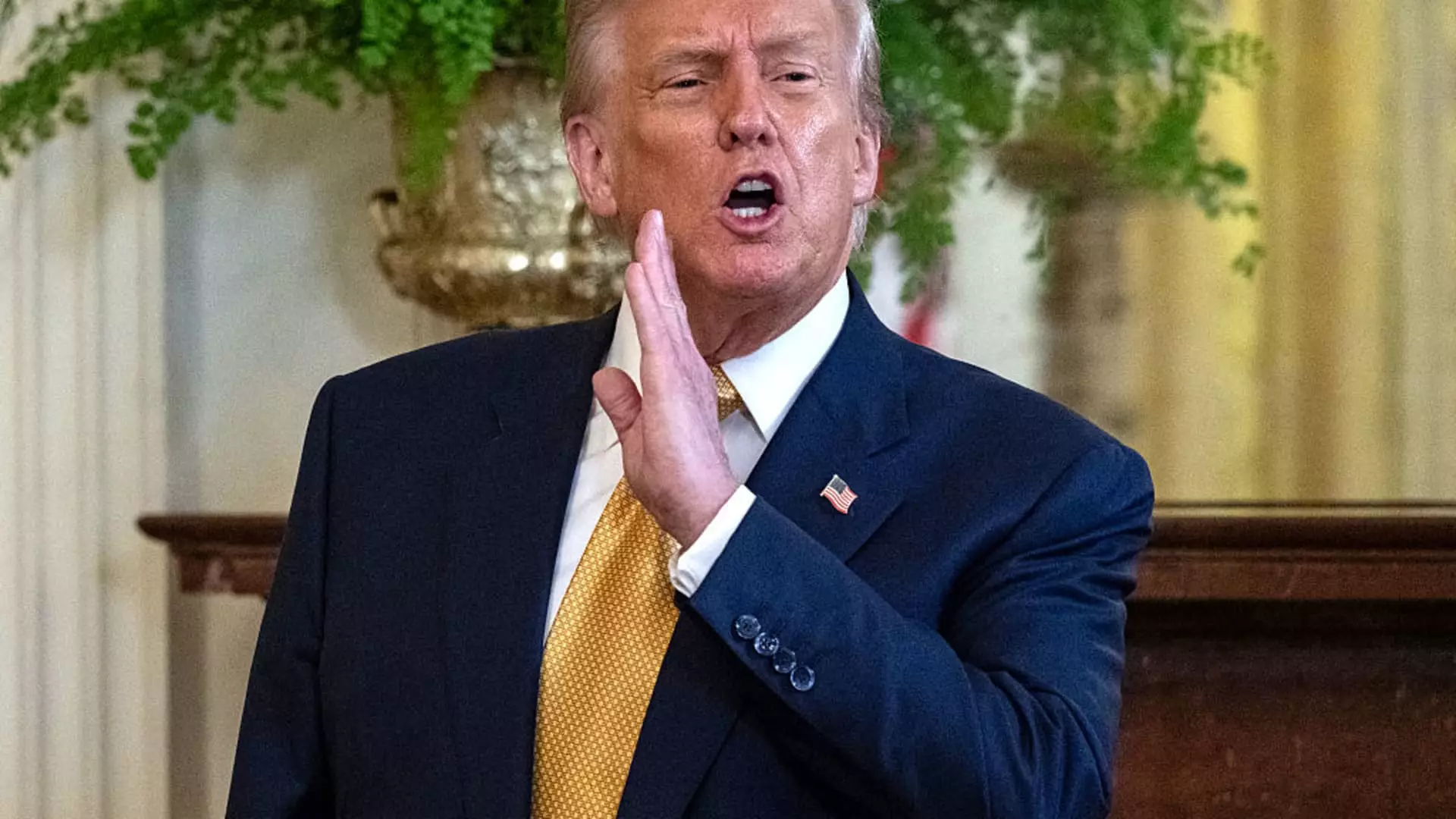In recent developments, the United States under President Donald Trump’s administration announced progress in its trade negotiations—notably with Japan—and hinted at forthcoming talks with the European Union. While these proclamations might appear as signs of a robust and cooperative global economy, a deeper analysis reveals a troubling narrative of protectionism disguised as economic diplomacy. The focus on tariffs, retaliations, and strategic negotiations often masks a core instability within the international trade system—one driven by political agendas more than genuine free-market principles.
The U.S.-Japan trade accord, marked by a reduction in tariffs on autos and other sectors, represents a tactical victory, but framing it as a positive step for global trade glosses over the underlying motivations. Such deals, primarily perceived as strategic moves to assert dominance or extract concessions, threaten the long-term stability of international markets. The European Union finds itself caught in this geopolitical tug-of-war, with its economy heavily intertwined with U.S. and global markets. Promises of negotiated outcomes frequently give way to urgent deadlines, creating a high-stakes environment ripe for rushed, suboptimal agreements that benefit short-term political optics rather than sustainable economic growth.
Protectionism Masks a Deeper Fear of Economic Displacement
The looming threat of tariffs of 30% on EU exports to the United States—and the potential for retaliatory measures—reveal a fundamental insecurity within the transatlantic economic relationship. These tariffs are not mere economic measures but strategic leverage points that threaten to escalate into a trade war. The EU’s response—slowing down retaliation while preparing for countermeasures—highlights the fragile dance of power and vulnerability.
This protectionist stance, justified by claims of defending national industries, often neglects the broader implications for consumers, workers, and multinational corporations caught in the crossfire. Rather than fostering a truly fair environment, tariffs and negotiations seem rooted in a desire to preserve certain sectors at the expense of others, risking a wave of economic fragmentation. When major industries like automotive manufacturing are involved, the consequences ripple across global supply chains, disrupting labor markets and consumer prices. The EU’s aspiration to secure exemptions or lower tariffs for specific sectors demonstrates a defensive posture—an acknowledgment that current strategies may do more harm than good in fostering an equitable global economy.
Market Sentiment and Political Calculations: A Volatile Mix
The reaction of financial markets to the U.S.-Japan deal and the anticipation surrounding EU negotiations underscore the interconnectedness of trade policies and investor confidence. Market indices surged on the promise of favorable agreements, but such optimism reportedly rests on fragile assumptions. The financial sector’s responsiveness to political signals can be dangerously misleading, as it often amplifies hopes driven by negotiations rather than actual policy stability.
Meanwhile, Europe’s diplomatic effort to engage with Japan and China amid ongoing tensions reveals a broader trend of strategic positioning rather than genuine economic reform. European leaders’ trip to Asia, aiming to bolster trade relations, coincides with an increasingly uncertain landscape shaped by U.S. protectionism. This dynamic risks dividing the global marketplace into blocs—each pursuing short-term gains at the expense of long-term cooperation. European leaders must scrutinize whether these diplomatic ventures genuinely serve European interests or merely serve as band-aids on a fractured system.
Furthermore, the interconnected concerns about China and the U.S. pressuring the EU reflect a world where economic diplomacy has become entangled with geopolitical rivalries. The EU’s cautious approach signals a desire for stability, but it also exposes a vulnerability: under mounting pressure, it might be forced to accept unfavorable terms rather than uphold its principles of fair trade and open markets.
Amid the tumult of tariffs, negotiations, and geopolitical negotiations, there lies an urgent need for a recalibration of priorities. The trade conflicts driven by protectionist impulses threaten to undermine decades of progress towards a more integrated and equitable global economy. The European Union, caught between responding to external pressures and safeguarding its values, must advocate for a balanced approach—prioritizing fair rules, transparency, and the reduction of economic disparities.
Instead of playing into the narrative that endless negotiations and strategic tariffs will secure economic prosperity, policymakers should recognize the importance of genuine multilateral cooperation. Only through renewed commitment to fair trade principles and inclusive growth can the global economy hope to navigate these turbulent waters without sacrificing sustainability and social equity. This moment demands more than tactical negotiations; it calls for a collective reimagining of how nations collaborate amidst the challenges of economic change and geopolitical uncertainty.

